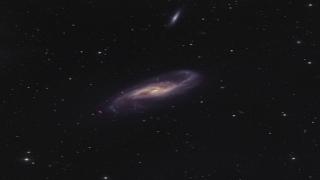We propose to study the evolution of galaxies through detailed analysis of images and spectra obtained with the most modern ground- and space-based telescopes. We will concentrate on two related important open questions in modern astrophysical research: how do galaxies evolve over their lifetimes, possibly changing their appearance and morphological type; and how and in exactly which circumstances do galaxy centres become 'active' - forming large quantities of massive stars or emitting non-stellar radiation as a result of material falling into a central massive black hole.
The expected impact of the proposed investigations as is follows:
- Publications in professional journals, describing advances in our understanding in the areas introduced above.
- Outreach material, including newspaper and magazine articles, freely available pretty pictures, and talks to the general public, describing the results obtained. - Increased interest in astronomy, and by implication in the sciences in general, among the general public, and in particular among young students who will hopefully in future enrich the number and quality of Europeans studying and working in the field of science and technology.
- Creation of employment and subsequent high-level professional training of young professional astronomers, who in the context of this project will be trained in the use of state-of-the-art astronomy research techniques. This will include the use of modern facilities and analysis techniques, and extensive collaborations with an internationally competitive set of scientists from many countries.
- Consolidation of the leading role in the field of galaxy evolution of the proposing IAC group. This lead has been confirmed by funding from the European Union, by citations and invitatons to speak, and by the postdoc destinations of our PhD students and postdocs (e.g., Zürich, Carnegie, MPIA, ESO).
- Increased collaboration between Spain and the leading international partners in space-based and radio astronomy, which has important potential ramifications for Spanish industry in terms of potential contracts related to the construction and future operation of large future telescopes such as the Square Kilometer Array (SKA). One of the main collaborative partners in this project is the University of Manchester, which houses the SKA project office.



